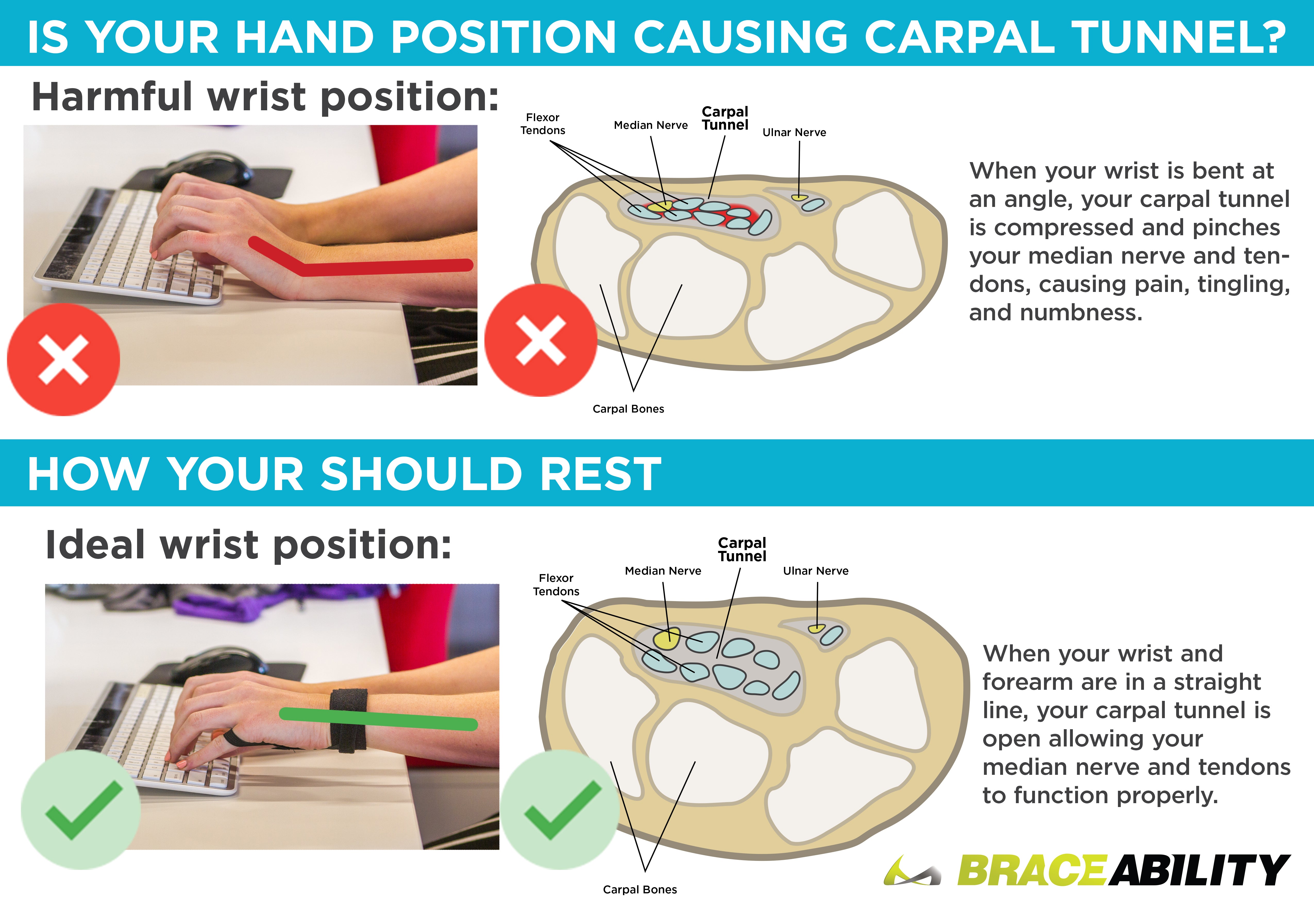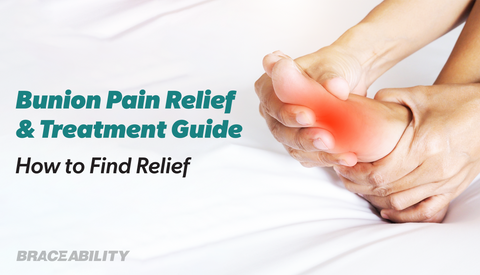Carpal Tunnel Symptoms and Causes
At its most basic level, the cause of carpal tunnel is compression of the median nerve. This nerve along with some tendons runs through the carpal tunnel on its way into the hand, where it branches into the ring, middle and index fingers as well as the thumb.
What Are the Symptoms of Carpal Tunnel?
This pressure on the nerve can cause pain, numbness, tingling, burning or weakness in the hand through the aforementioned fingers. Other symptoms of carpal tunnel might include a weak grip or clumsiness of the fingers. Some also experience pain radiating through the forearm.
Generally speaking, carpal tunnel syndrome symptoms begin and are most evident in one’s dominant hands. They also tend to occur most often at night, with sleeping on one’s side with the wrists flexed thought to possibly be associated with this. There are wrist splints for nighttime use that can be helpful for preventing these symptoms of carpal tunnel syndrome in hand.
It is important to heed the warning signals of these carpal tunnel symptoms. If left untreated, the resulting nerve damage and muscle atrophy may become permanent; the same can be said about the associated symptoms of carpal tunnel syndrome.
What Causes Carpal Tunnel Syndrome?
While you know what causes carpal tunnel from a technical perspective, that does not provide much insight as to what causes carpal tunnel, and, thus, what steps one can take to prevent or remedy the condition.
 Some are simply born with smaller carpal tunnels, making them more prone to the condition. Women, for instance, naturally have smaller carpal tunnels. Thus bilateral carpal tunnel syndrome causes for some are hereditary.
Some are simply born with smaller carpal tunnels, making them more prone to the condition. Women, for instance, naturally have smaller carpal tunnels. Thus bilateral carpal tunnel syndrome causes for some are hereditary.
But in many cases, swelling is the carpal tunnel cause. This swelling can be due to a number of things, including injury to the wrist, fluid retention associated with pregnancy or obesity, or metabolic disorders, such as hyperthyroidism.
Certain conditions in and of themselves result in inflammation, such as an infection or rheumatoid arthritis. A cyst, bone spur or tumor can also be carpal tunnel causes, due to their placement and/or the inflammation they might cause. Nerve-damaging conditions, such as alcoholism or diabetes can also be carpal tunnel syndrome causes.
There is also thought to be a link between repetitive motions of the hand and wrist and carpal tunnel, though studies on this matter have been inconclusive. This might include such things as working on an assembly line, operating heavy, vibrating equipment, playing the guitar, sewing, or typing as causes of carpal tunnel syndrome. (Check out this ABC article for an answer to the question, “Can texting cause carpal tunnel?”
Carpal Tunnel Symptoms and Treatment
In some cases, surgery is needed to alleviate the symptoms of carpal tunnel, followed by use of a post-operation carpal tunnel brace. But this is usually undergone after trying more conservative modes of treatment. (Read more on surgical and non-surgical modes of treatment for carpal tunnel.)
First a professional will likely recommend wearing a carpal tunnel brace during the day and/or a carpal tunnel splint at night to rest the wrist. Applying ice and compression along with taking an anti-inflammatory medication can help reduce the troublesome swelling.
All the while and going forward, one must pay attention to how he or she can avoid the wrist aggravating activities that are causes of carpal tunnel. Learn more about Carpal Tunnel Syndrome in our resource library.










